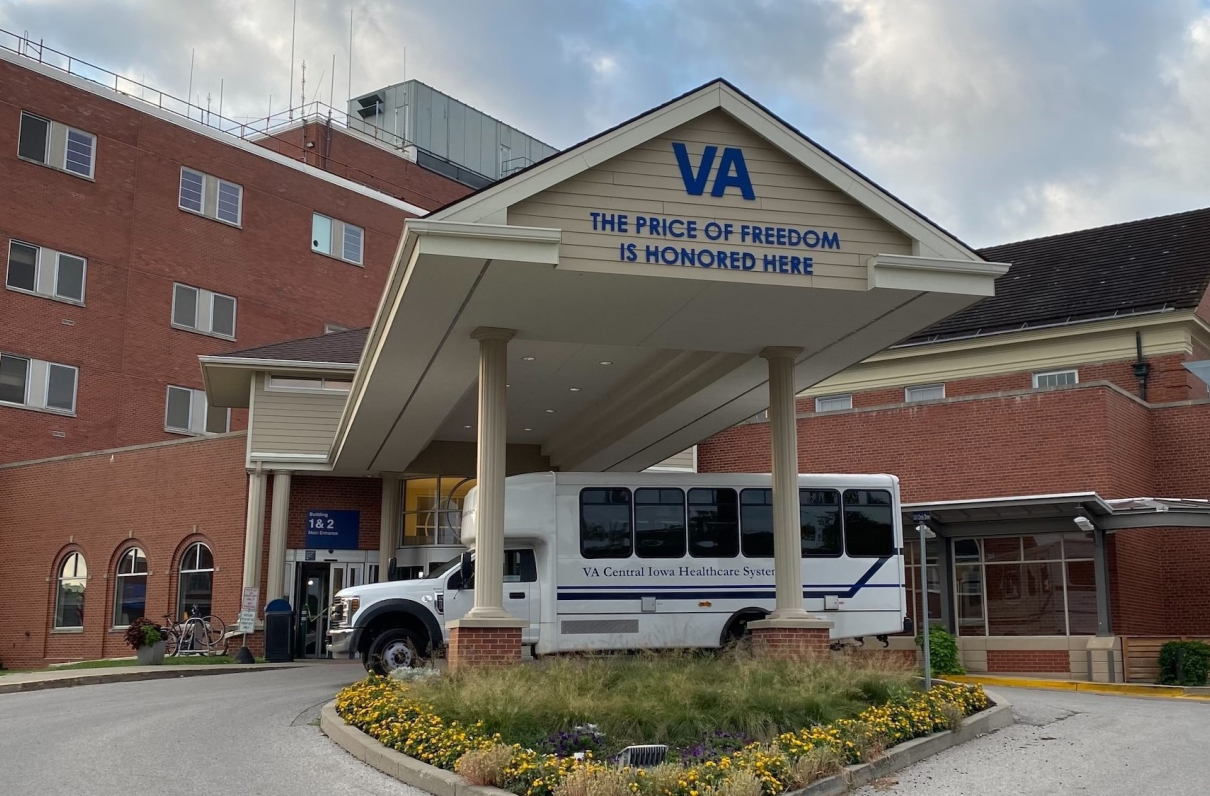Senate appropriators advanced their version of the FY 2024 military construction and VA spending bill last week, a month after the House reported its bill out of committee. The move paves the way for negotiations to take place over the summer months, in the hope of a bill going to the president before the Oct. 1 start of the new fiscal year.
Appropriators are making up for lost time because of the late submission of the president’s budget and intense negotiations over the Fiscal Responsibility Act (FRA) debit ceiling agreement, which became law June 3. Many appropriators voiced disappointment in the statute’s low topline limits for defense and homeland security funding, but VA’s spending for health care and benefits was protected in the FRA agreement – appropriators honored that commitment during the markups.
[RELATED: House Hearing Highlights Challenges in Coordinating Veterans Health Care]
Veterans and defense appropriators and authorizers have a long history of bipartisanship looking out for those who serve and have served in uniform. That message was reiterated by both chairs of the House and Senate appropriations committees voicing their commitment to the servicemembers, veterans, their families, and survivors during the markups. Both appropriations bills fund VA health care around the $137 billion requested by the president.
“These savings will allow us to reduce overall spending without shortchanging what is most important: national defense, homeland security, and veterans,” said Rep. Kay Granger (R-Texas), chair of the House Appropriations Committee, in opening remarks at the House hearing. “As I have said before, we can and will reduce spending on lower-priority programs while honoring our commitment to veterans.”
The Senate marked the first time two women presided over a committee markup – Sens. Patty Murray (D-Wash.) and Susan Collins (R-Maine), chair and ranking member, respectively. The hearing was also the first televised committee markup rather than the traditional audio-only proceedings.
Breaking Down The Bills
While both the House and Senate bills honor Congress’ promise to veterans by fully funding veterans’ health care and benefit programs, each chamber had differing viewpoints on several social issues, which likely will result in strong floor debates in the months ahead.
There was bipartisan recognition among Senate appropriators on the risks of not passing appropriations — a government shutdown, an omnibus, or across the board cuts.
[TAKE ACTION: Ask Your Member of Congress to Ensure the Coast Guard is Paid During a Government Shutdown]
“We have an obligation to take care of our veterans when they come home — and a responsibility to ensure we have the world-class military infrastructure we need to support our servicemembers and keep our nation safe,” Murray said. “Despite working under challenging circumstances, we’ve put together a strong, bipartisan bill to fund the VA and military construction.”
There are many common health care bill provisions in each chamber, and well as provisions which align with MOAA's priorities for veterans' legislation in the 118th Congress. Some of these provisions include funding for:
- Opioid prevention and treatment programs — Expanding alternative treatments for pain management and other therapies.
- Mental health and suicide prevention — Supporting implementation of previous congressional mandates, improving delivery of mental health services in vet centers, fully staffing suicide prevention coordinators, and expanding treatment for posttraumatic disorder and traumatic brain injury conditions.
- Dental care — Submitting a report on the department’s oral health care programs and services.
- Telehealth and Connected Care — Expanding telehealth services to address limited access to care in rural areas, backlogs in disability exams, and problems with appointment scheduling.
- Whole Health — Establishing guidelines and expanding nutrition and food service programs.
- Women’s Health — Expanding gender-specific health care services and research programs, and improving medical facilities to care for woman veterans.
- Electronic Health Record — Preventing disbursement of funds until the VA provides a report to Congress on the status of the department’s electronic health record modernization project, and requiring the new system to exchange diagnostic quality medical images between VA facilities and community providers.
- Child Care — Supporting expansion of the child care assistance pilot program for veterans receiving care at VA medical facilities.
Chamber-Specific Provisions
While there is topline agreement on spending, there are differences between the House and Senate bills which will need to be worked out during negotiations.
House-only provisions include:
- Toxic Exposure Research Program — Emphasizes research on colorectal cancer, studies on Gulf War illnesses, and women veterans.
- Substance Use Disorder — Improvements in education among primary care providers on diagnosis and treatment and the screening of veterans.
- Prescriptions — Requires a report on the feasibility of expanding prescriptions filled by community pharmacies beyond the current two-week requirement.
- Food Security — Provides funding for the Office of Nutrition and Food Services to create a clinical produce prescription program.
- Social Issues — Several provisions were related to preventing funding for abortion and gender-affirming services, and the implementation of diversity, equity, and inclusion programs across the department.
Senate-only provisions include:
- VA Privatization — Opposes any effort to weaken the VA medical system or put it on a path toward privatization.
- Health Care Access — Requires a report on appointment wait times for care at the VA and in the community.
- Long-Term Care — Requires a report on possible alternative payment options for the Homemaker and Home Health Care Aide
- Caregiver Support — Provides additional funding for the caregiver support program and a report on the needs of disabled veterans and their families and children.
Stay tuned for more updates on VA appropriations in future MOAA newsletters, magazines, and social media postings. If you are not a MOAA member, consider joining our powerful force of over 360,000 members to let lawmakers know what is on your mind and to take advantage of membership services and benefits.

